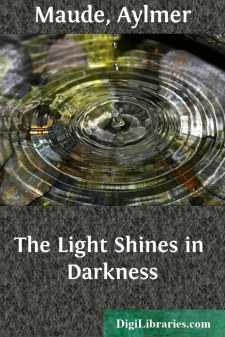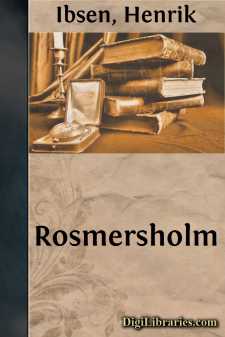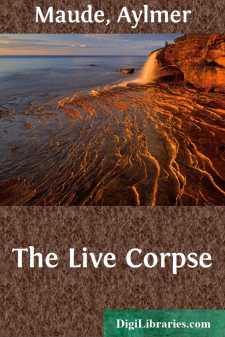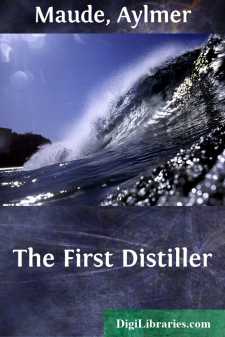Drama
- American 43
- Ancient, Classical & Medieval 45
- Asian 7
- Caribbean & Latin American 2
- Continental European
- English, Irish, Scottish, Welsh 91
- General 105
- Middle Eastern 1
- Religious & Liturgical 1
- Shakespeare 1
Continental European Books
Sort by:
by:
William Archer
The Master Builder—or Master Builder Solness, as the title runs in the original—we enter upon the final stage in Ibsen's career. "You are essentially right," the poet wrote to Count Prozor in March 1900, "when you say that the series which closes with the Epilogue (When We Dead Awaken) began with Master Builder Solness." "Ibsen," says Dr. Brahm, "wrote in...
more...
by:
Aylmer Maude
ACT I Scene 1 The scene represents the verandah of a fine country-house, in front of which a croquet-lawn and tennis-court are shown, also a flower-bed. The children are playing croquet with their governess. Mary Ivánovna Sarýntsova, a handsome elegant woman of forty; her sister, Alexándra Ivánovna Kóhovtseva, a stupid, determined woman of forty-five; and her husband, Peter Semyónovich , a fat...
more...
by:
Henrik Ibsen
ACT 1 (SCENE—The sitting-room at Rosmersholm; a spacious room, comfortably furnished in old-fashioned style. In the foreground, against the right-hand wall, is a stove decorated with sprigs of fresh birch and wild flowers. Farther back, a door. In the back wall folding doors leading into the entrance hall. In the left-hand wall a window, in front of which is a stand filled with flowers and plants....
more...
by:
Aylmer Maude
Scene 1 Protásov's flat in Moscow. The scene represents a small dining-room. Anna Pávlovna, a stout grey-haired lady, tightly laced, is sitting alone at the tea-table on which is a samovár. Enter nurse, carrying a teapot. NURSE. May I have a little hot water, ma'am? ANNA PÁVLOVNA. Yes. How's Baby? NURSE. He's restless.… There's nothing worse than for a lady to nurse her...
more...
INTRODUCTION* Koerlighedens Komedie was published at Christiania in 1862. The polite world—so far as such a thing existed at the time in the Northern capital—received it with an outburst of indignation now entirely easy to understand. It has indeed faults enough. The character-drawing is often crude, the action, though full of effective by-play, extremely slight, and the sensational climax has...
more...
by:
Aylmer Maude
ACT I PEASANT [ploughing. Looks up] It's noon. Time to unharness. Gee up, get along! Fagged out? Poor old beast! One more turn and back again, that will be the last furrow, and then dinner. It was a good idea to bring that chunk of bread with me. I'll not go home, but sit down by the well and have a bite and a rest, and Peggy can graze awhile. Then, with God's help, to work again, and...
more...
by:
Edwin Bjorkman
INTRODUCTION Hermann Bahr, the noted playwright and critic, tried one day to explain the spirit of certain Viennese architecture to a German friend, who persisted in saying: "Yes, yes, but always there remains something that I find curiously foreign." At that moment an old-fashioned Spanish state carriage was coming along the street, probably on its way to or from the imperial palace. The...
more...
by:
Henrik Ibsen
PLAY IN FOUR ACTS. ACT FIRST. (A rocky coast, running precipitously down to the sea at the back. To the left, a boat-house; to the right, rocks and pine-woods. The masts of two war-ships can be seen down in the cove. Far out to the right, the ocean, dotted with reefs and rocky islands; the sea is running high; it is a stormy snow-grey winter day.) (SIGURD comes up from the ships; he is clad in a white...
more...
by:
Henrik Ibsen
ACT I (SCENE.—DR. STOCKMANN'S sitting-room. It is evening. The room is plainly but neatly appointed and furnished. In the right-hand wall are two doors; the farther leads out to the hall, the nearer to the doctor's study. In the left-hand wall, opposite the door leading to the hall, is a door leading to the other rooms occupied by the family. In the middle of the same wall stands the stove,...
more...
ACT I The garden of IVANOFF'S country place. On the left is a terrace and the facade of the house. One window is open. Below the terrace is a broad semicircular lawn, from which paths lead to right and left into a garden. On the right are several garden benches and tables. A lamp is burning on one of the tables. It is evening. As the curtain rises sounds of the piano and violoncello are heard....
more...











